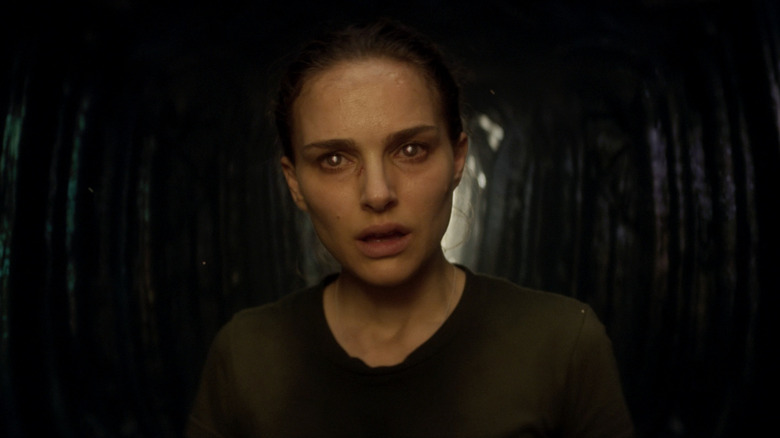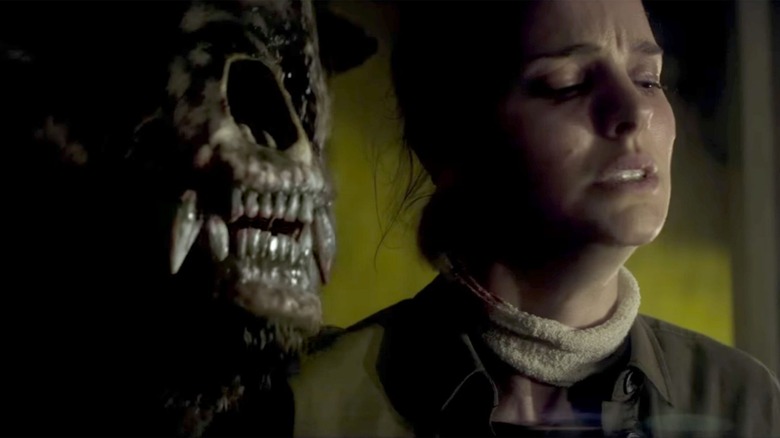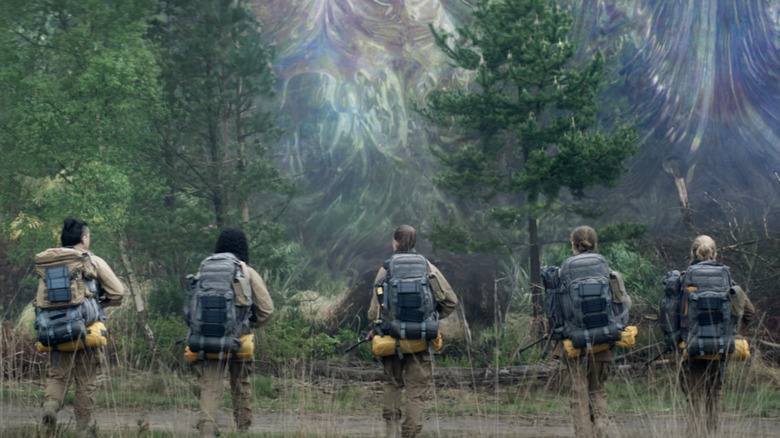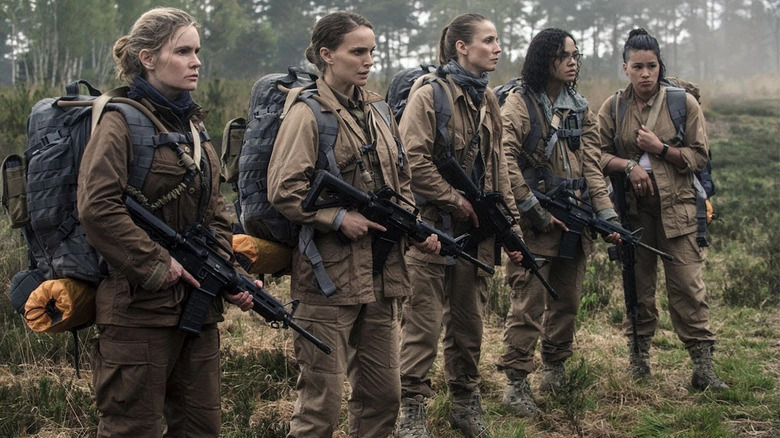Annihilation's Story Wasn't Why Alex Garland Made It A Movie
Novels have been adapted for the screen for as long as there have been movies. They receive the cinematic treatment for a variety of different reasons. Sometimes, there is a book that is so popular that a movie studio just has to quickly buy up the rights and turn it into a film to capitalize on the success. There are those where filmmakers want to slavishly reproduce what they read on the page into the visual medium, and we also have the inverse of that, where a kernel of a novel sparks a filmmaker to go off in their own direction. Books get adapted for prestige, box office, credibility, and so many other reasons.
One assumes that the primary reason a novel would be adapted is for its story. After all, that is what most people go to the movies for. People like the intrigue, the turns, and the discovery that a good story can provide, and plenty of filmmakers feel exactly the same way. So, is that why Alex Garland found the novel "Annihilation" by Jeff VanderMeer a perfect source for a screen adaptation?
Well, not entirely.
Vibing in the shimmer
Of course, Garland was struck by the originality of VanderMeer's novel, saying in an interview with The Verge:
"It's super original. So many stories are retellings of other stories in a really self-conscious way, to the extent that I almost feel like it's ritualistic. Like, you see the beats of that particular story starting, and you think, 'Wow. We're doing this again. It's happening again.' What is the ritual? Where's the comfort? What's the need [this is addressing]? Particularly because so many of them are not comforting; they're kind of disturbing. It's just a weird thing. And Jeff's book seems to just sit totally outside that, which I thought was really interesting."
But this was not the primary reason why he saw it fit for a movie. Alex Garland saw cinematic potential in "Annihilation" because the novel was, as the kids say, a vibe. As he told The Ringer, Alex Garland was first given the novel "Annihilation" during the postproduction process on his fantastic debut feature "Ex Machina." Almost immediately he was ready to dive in, saying in that interview:
"It's really an original book, and it's very atmospheric. And I just said, 'Yeah, I'm in.' I had to struggle about it, how to think [about] how to adapt it. But I had a couple of conversations with Jeff [VanderMeer], and actually I just launched into it. And I started writing it pretty promptly.
It's all about atmosphere
That is not the only time he mentions "atmosphere" when he talks about the book. It crops up in so many of the interviews he gave about the film. Garland was struck by the book's dreamlike atmosphere, where every element was slightly off but made complete sense while you were experiencing it. He would expand on this motivation in an interview with That Shelf:
"The thing that really made me want to do it was the atmosphere, and that, in some ways, the act of reading the book was like having a dream. That was what I felt I wanted to replicate. And in the way a dream can have a kind of internal coherence and also cling with you was the quality ... If you have a particular kind of dream which is powerful in a certain kind of way, it just stays. It sort of permeates through the day, and we wanted to sort of create that as well."
Garland was keen on capturing that feeling of almost logical nonsense that felt emotionally real. As he put it in that interview, "In the dream, if that was a television one moment and then it was your grandmother and then it was a vase of flowers, you wouldn't looking around saying, 'What the hell is going on?'"
A job well done
On that level, he absolutely succeeds when it comes to his adaptation. Every moment is played on such an even keel that he can throw anything he feels into the film, and it would not seem out of place, whether that be a frightening bear monster, Tessa Thompson peacefully turning into a topiary, or Natalie Portman encountering her double in a lighthouse. While every piece is a discovery, nothing overturns the apple cart of believability. If Alex Garland does not execute that dreamlike atmosphere he so wanted to capture perfectly, it would be really easy to just check out of the movie entirely.
He nailed it. He nailed it so much that when I first saw the movie, the projector broke, and it took a few minutes before the audience realized a black screen was not part of the movie. That is how locked into the dreamy nature of "Annihilation" Garland made his audience. A job well done.



